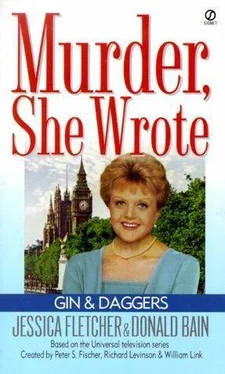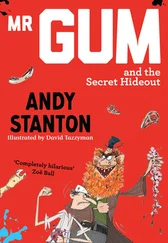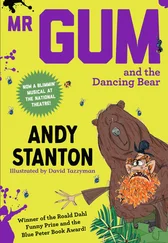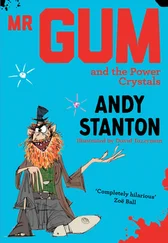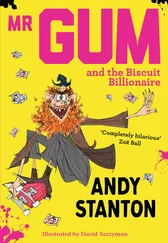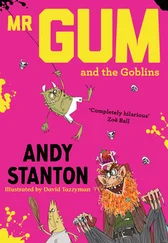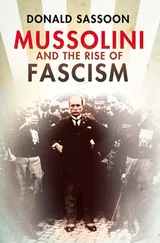Donald Bain - Gin and Daggers
Здесь есть возможность читать онлайн «Donald Bain - Gin and Daggers» весь текст электронной книги совершенно бесплатно (целиком полную версию без сокращений). В некоторых случаях можно слушать аудио, скачать через торрент в формате fb2 и присутствует краткое содержание. Жанр: Детектив, на английском языке. Описание произведения, (предисловие) а так же отзывы посетителей доступны на портале библиотеки ЛибКат.
- Название:Gin and Daggers
- Автор:
- Жанр:
- Год:неизвестен
- ISBN:нет данных
- Рейтинг книги:3 / 5. Голосов: 1
-
Избранное:Добавить в избранное
- Отзывы:
-
Ваша оценка:
- 60
- 1
- 2
- 3
- 4
- 5
Gin and Daggers: краткое содержание, описание и аннотация
Предлагаем к чтению аннотацию, описание, краткое содержание или предисловие (зависит от того, что написал сам автор книги «Gin and Daggers»). Если вы не нашли необходимую информацию о книге — напишите в комментариях, мы постараемся отыскать её.
Gin and Daggers — читать онлайн бесплатно полную книгу (весь текст) целиком
Ниже представлен текст книги, разбитый по страницам. Система сохранения места последней прочитанной страницы, позволяет с удобством читать онлайн бесплатно книгу «Gin and Daggers», без необходимости каждый раз заново искать на чём Вы остановились. Поставьте закладку, и сможете в любой момент перейти на страницу, на которой закончили чтение.
Интервал:
Закладка:
I was seated next to Count Antonio Zara, who held out my chair for me and, I suspect, had intentions of kissing my hand, which I deftly avoided by wrapping both of them around my purse.
Mr. Gould-Brayton looked the way he sounded, terribly overweight, dark three-piece suit with gold chain draped across his large belly, and rimless spectacles, and, I was certain, had bad breath, although I wasn’t close enough to confirm that supposition.
My assumption that Jane Portelaine would be there had been confirmed the moment I entered the reception area. Victorian posy hung heavy in the air and dominated the conference room.
Jane sat across the large mahogany conference table from me, flanked by American agent Bruce Herbert, and American publisher Clayton Perry. Her appearance this afternoon interested me. She wore lipstick, just a touch, but surprising nonetheless. She’d done something with her hair that allowed it to fall with more softness about her face. Her nails appeared to have been freshly manicured, and a subtle, rose-colored nail polish, the same shade as her lipstick, had been expertly applied. Her dress, too, was different, although not dramatically so. She wore a teal blouse and had left the top button open, of all things. A simple chain suspended the gold letters of her name above her bosom. The heavy gray cardigan sweater seemed the only throwback to how I’d always remembered her, although I couldn’t see her skirt and shoes.
“Hello, Jane,” I said.
She smiled at me. “Hello, Mrs. Fletcher. It’s good to see you again.”
What a change from our strained conversation at the graveside.
“Bloody shame we meet again like this,” said Archibald Semple, Marjorie’s British publisher. “We’ll have a more festive atmosphere this evening at dinner. I trust you are joining us, Mrs. Fletcher.”
“Yes, and looking forward to it, Mr. Semple.”
Bruce Herbert, whose suit looked as though it had come minutes ago from Tommy Nutter or Henry Poole on Savile Row, leaned as far as he could over the table and asked, “Have you given any thought to the suggestion?”
“What suggestion?”
“About the nonfiction account of this tragedy.”
“Oh, no, no further thought at all, Mr. Herbert. It really doesn’t interest me.” Herbert sat back. The broad, engaging smile that had been on his face disappeared, and he cast a sideward glance at Clayton Perry, who sat in his usual bolt-upright posture, tanned hands folded neatly on the table. Perry smiled; I returned the smile.
“Well now, ladies and gentlemen,” Mr. Gould-Brayton intoned, “we might as well get to this painful but necessary business.” He looked across the room to where a young assistant stood at attention. Gould-Brayton didn’t have to say anything to him. The young man opened the door and motioned to someone, and a young female stenographer came to a small desk at Gould-Brayton’s side and poised her fingers over the keyboard of a court stenographer’s machine.
Marjorie’s will turned out to be novella-length. I didn’t want to be impudent, but I couldn’t help but smile at so many of the preliminary comments she included in it. She seemed to have used the opportunity to expound on matters dear to her, including her growing disgust with brooding, discourteous, and unpleasant young people behind shop counters; television programs that insult the intelligence of anyone with an IQ slightly above moronic; writers who use the word “enthused” rather than “enthusiastic”; frozen food; women who wear fur coats; and myriad other aspects of life she found disagreeable. Mr. Gould-Brayton was obviously embarrassed at having to read all of this. He stopped once, smiled, and said through fleshy lips, “She was a writer, after all.” We all laughed nervously, and he continued, evidently content that he had sufficiently distanced himself from this client who viewed a last will and testament as more than simply a division of spoils.
“She should have videotaped this,” Bruce Herbert said. “I can see her now delivering these protestations against society.”
Mr. Gould-Brayton looked at Herbert, closed his heavy eyelids as though to ask whether he were through, then returned his attention to the typewritten pages in front of him.
Eventually he reached the financial portion of the will, and I noticed everyone sit up a little straighter. Gould-Brayton paused for effect, removed his spectacles and held them up to the light to ascertain they were clean enough for accurate reading, placed them on his nose, and read, “ ‘I have made far more money then any human being is entitled to make, and have spent very little of it, my frugality a source of constant annoyance to local shopkeepers and telephone solicitors attempting to sell me magazines that would surely go unread. Because of my lifelong dedication to cheeseparing, I am able to leave behind a substantial sum of money, most of it undoubtedly to be squandered, some of it to be used wisely only because I have taken the steps necessary to ensure that.’ ” Gould-Brayton looked up at us. “Any questions?” he asked.
We all shook our heads.
He continued. “ ‘I hereby bequeath one half of my estate, presently accounted for and to be earned through the future sale of my books, to a trust to be named the Marjorie Ainsworth International Study Center for Mystery Writers, to be housed at Ainsworth Manor, and to be stocked with every available reference source the trustees are able to obtain.’ ”
“Hear, hear,” said Archibald Semple. “The woman was a benefactor to her profession, a saint. How splendid to have such a center here in Great Britain.”
Gould-Brayton cleared his throat for order. “ ‘Because my niece and companion of many years, Jane Portelaine, has, at least from her perspective, given up her life for me, I leave to her one quarter of my estate, currently accounted for and to be earned in the future.’ ” Jane managed a smile and looked down at the. table, her hands clasped in front of her.
“ ‘To my dear friend and American colleague, Jessica Fletcher, I leave one eighth of my estate, present money only. Her earnings in the days ahead from her wonderful works of fiction will ensure her future without any help from me.’ ”
I blushed and shook my head. “That is so generous, but as I told Mr. Gould-Brayton, I intend to donate whatever money my share amounts to to the center Marjorie has established.”
“Very generous of you, Jessica,” said Bruce Herbert.
Archibald Semple’s wife tapped the ends of her fingers together and said, “Bravo, Mrs. Fletcher. How typically American.”
“ ‘Next, to my dear friend, critic William Strayhorn, who always had kind things to say about my books, the only exception being his occasional annoyance at how often I mention food in them, which, I might add, I do to substitute for the singular lack of sex in the genre-’ ”
I laughed; I couldn’t help it. Everyone looked at me. “Sorry,” I said. “Please continue.”
“ ‘… I leave the sum of twenty thousand pounds for the day when he is no longer able to enjoy either sex or food.’ ”
“Shame he isn’t here,” Semple said.
“Just as well that he isn’t,” said Bruce Herbert.
Gould-Brayton again checked his glasses for dirt, drew in a deep, rumbling breath to maintain his reading momentum, and pressed on. “ ‘My faithful household staff, with the exception of the newcomer, Marshall, are to be cared for in Ainsworth Manor for the rest of their days, their salary doubled from the date of my demise.’ ”
“It is nice to see she kept the common man in mind,” Count Zara said, to which his wife, Ona, mumbled, “Let them eat cake. They don’t deserve a penny.”
Gould-Brayton asked his assistant for a glass of water. After he’d drunk it (the room was so quiet you could hear the liquid cascading down his throat and into his belly), he said, “There are still other disbursements to be announced. I must admit that in all my years in the legal profession, I have yet to see such provisions in any other will, although, I must admit, Miss Ainsworth was… how shall we say it, an unusual individual.” He looked at Ona Ainsworth-Zara. “I indicated to you, Mrs. Ainsworth-Zara, that it might be less painful for you and your husband not to have attended this gathering. If you would like to leave now, I am sure everyone would understand.”
Читать дальшеИнтервал:
Закладка:
Похожие книги на «Gin and Daggers»
Представляем Вашему вниманию похожие книги на «Gin and Daggers» списком для выбора. Мы отобрали схожую по названию и смыслу литературу в надежде предоставить читателям больше вариантов отыскать новые, интересные, ещё непрочитанные произведения.
Обсуждение, отзывы о книге «Gin and Daggers» и просто собственные мнения читателей. Оставьте ваши комментарии, напишите, что Вы думаете о произведении, его смысле или главных героях. Укажите что конкретно понравилось, а что нет, и почему Вы так считаете.
